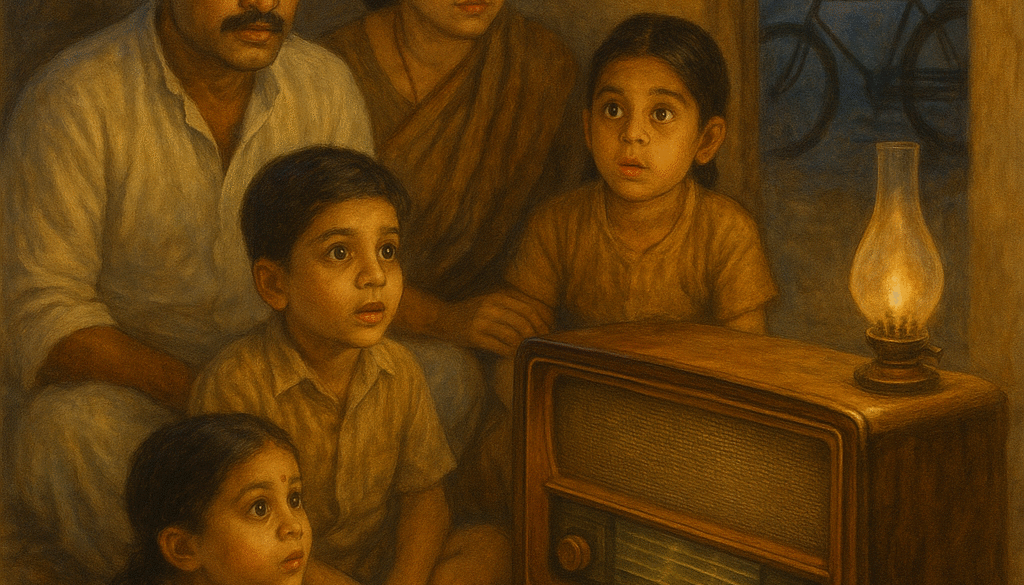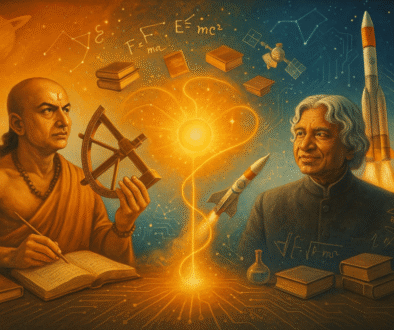From Radios to Robots: How Technology Changed Across Generations — and What Awaits After 2060
“Grandpa, did you really live without the internet?”
Grandpa chuckled, “Not just the internet—we didn’t even have a TV when I was young!”
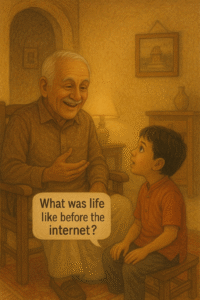
That single line shows how quickly technology changes. What seems normal to us today often feels unbelievable to the generation before. Technology is the thread that has rewoven daily life, entertainment, communication, and dreams—over and over again.
Let’s take a journey across time, and then take a peek into what might happen beyond 2060.
Grandparents’ Era – The Radio and Bicycle Generation
For our grandparents, the radio was the king of the house. Families waited eagerly for the evening news, drama shows, or patriotic songs. There were no headphones—everyone listened together, creating moments of shared excitement.
Electric bulbs slowly brightened homes that once depended on kerosene lamps. The postman was the most awaited visitor, carrying letters filled with emotions that sometimes took weeks to arrive. Bicycles became the symbol of mobility, giving people a sense of speed and freedom.
Did You Know? In the 1930s, owning a radio was such a big deal that neighbors often gathered in one house to listen together!
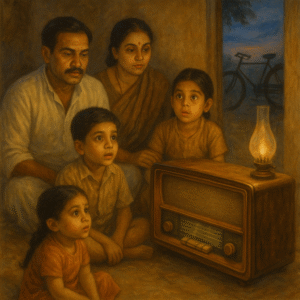
Parents’ Era – The Era of TV, Telephones, and Scooters
When televisions arrived, they transformed family life. Evenings became TV time, with everyone sitting together. Black-and-white gave way to color, and cricket matches, film songs, and Sunday movies brought joy to millions.
Telephones, with their round dials and “tring-tring” sounds, changed communication forever. Suddenly, you could hear the voice of a loved one miles away. Scooters gave families independence, while transistor radios made cricket commentary portable—you could hear it while walking on the street or sipping tea in a market.
Did You Know? In 1982, the Asian Games in Delhi were the first major event broadcast on color TV in India.
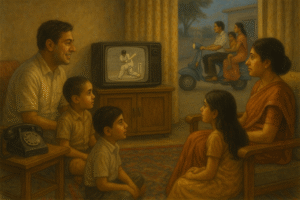
Our Era – The Computer, Internet, and Mobile Revolution
Our generation witnessed the fastest transformation. Computers entered schools and offices, slowly becoming essential. The internet opened doors to the world—emails replaced letters, and “surfing the net” became a popular phrase.
Then came mobile phones, changing everything again. From SMS messages to social media, communication became instant. Smartphones placed entire libraries, cameras, banks, and shops inside our pockets. The way we learn, work, and even entertain ourselves was reshaped forever.
Did You Know? The world’s first SMS, sent in 1992
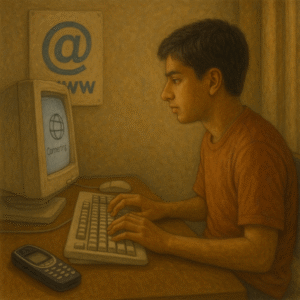
Today’s Children – Digital Natives, AI Friends, and Space Dreams
Children today are growing up in a world our grandparents could never imagine. Smart boards and tablets have replaced chalkboards. Online learning platforms mean a child can learn from a teacher across the world.
Voice assistants like Alexa and Siri are household helpers. Drones deliver packages, cars are beginning to drive themselves, and virtual reality allows children to “visit” the pyramids of Egypt or the surface of Mars—without leaving their classrooms.
Meanwhile, space exploration is no longer science fiction. With missions like Chandrayaan and Gaganyaan, India too is part of the global space dream.
Did You Know? The first selfie taken in space was by astronaut Buzz Aldrin during the 1966 Gemini 12 mission!
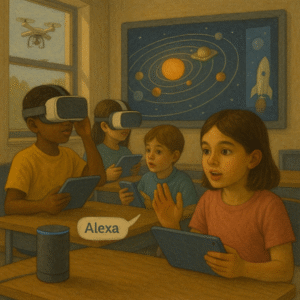
Beyond 2060 – A Glimpse of Tomorrow
What lies ahead? If the past century has shown us anything, the next leaps will be even bigger. Here are some possibilities:
– Brain Downloads – Instead of spending years learning, students might download knowledge directly into their brains.
– Unlimited Clean Energy – Fusion power and solar stations in space could make electricity free and endless.
– Life on Mars and the Moon – Human colonies could grow food in space domes and mine asteroids for resources.
– Health Revolution – Nanobots inside our bodies could repair cells, making diseases like cancer history.
– Human–AI Teams – Robots and AI could work alongside humans, not just as helpers but as partners in science, art, and discovery.
– Extended Lifespan – Advances in genetics may allow humans to live far longer, healthier lives than ever before.
Did You Know? Experts believe the first human to live for 150 years may already be alive today!


